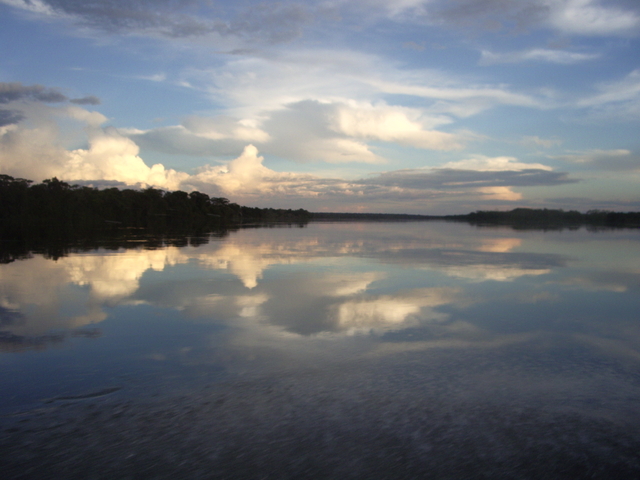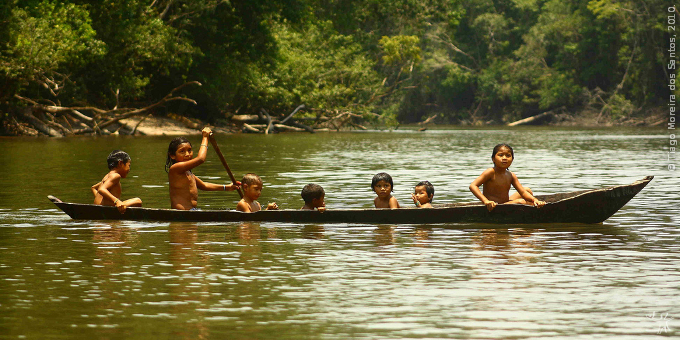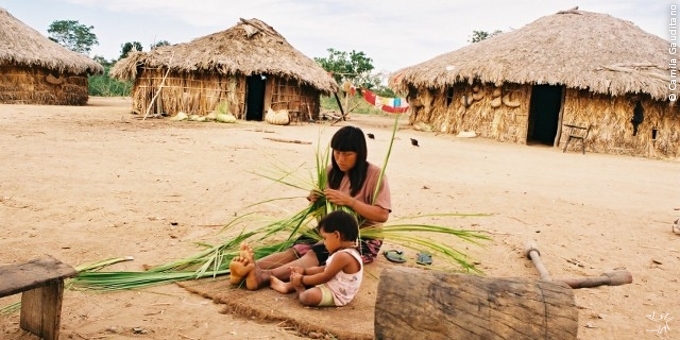Indians and the ecology
Foto: various authors, see here
Even though they are not 'naturally ecologists', Indigenous people should be seen as historically capable of having managed natural resources in a rather non-destructive way, causing very little environmental disturbances up until the arrival of the European conquerors.
Different conceptions of 'nature'

Those who think of the Indians as 'natural' beings, innate defenders of nature, 'naturalists', are just a step away from seeing them as mere extensions of the environment: for them Indians should be 'preserved' and kept apart from the 'civilized' world.
This vision derives, however, from a conception of nature that is proper to the Western world: the idea of nature as something that should remain untouched, away from human action. What Indigenous peoples themselves have to say about that is very different though.
The conceptions about nature certainly vary considerably according to the Indigenous people we look at. However, if there is anything common to all of them is the fact that nature is always interacting with human actions, it is never untouched.
The Yanomami, for instance, use the word urihi to refer to the 'land-forest': it is a living entity, endowed with a 'vital breath' and with a 'fertility principle' of mythical origin. Urihi is inhabited and enlivened by many spirits, among them the spirits of the Yanomami shamans, who are also its guardians.
The survival of human beings and the preservation of social life in what refers, for example, to obtaining food and protection against diseases, depends on the relationship with these forest spirits. Thus for the Yanomami nature is a stage from which human action is not separated.
Partners of environmental preservation
Even though they are not 'naturally ecologists', Indians are conscious of their dependence - not just physical, but especially cosmological - of the environment. Because of this, they use ways of stewardship of natural resources that have proved to be essential for the preservation of Brazil's natural forest cover.
That is particularly noticeable in the regions where deforestation has been advancing at high rates, such as in the States of Mato Grosso and Rondônia and in the Southern part of the State of Pará. In a survey carried out by INPE (Instituto Nacional de Pesquisas Espaciais - National Institute for Space Research), for instance, Indigenous Lands appear as veritable oasis of forests.
It is true that many Indigenous peoples, such as the Suruí, the Cinta-Larga and the Kayapó, have become actively involved in the predatory ways of exploitation of natural resources that take place in the Amazon Region nowadays by making alliances especially with timber companies. However, it must be recognized that they did so while submitted to concrete, continuos, illegal pressures, and as minority partners in these businesses.
Today and in the future it is necessary to seek mechanisms for maximizing the chances of the Indians solve in their favor the problem of their control over extensive lands with low demographic occupation. One such mechanism is the still incipient combination of Indigenous projects with non-Indian strategies for the sustainable use of natural resources, be them public or private.



